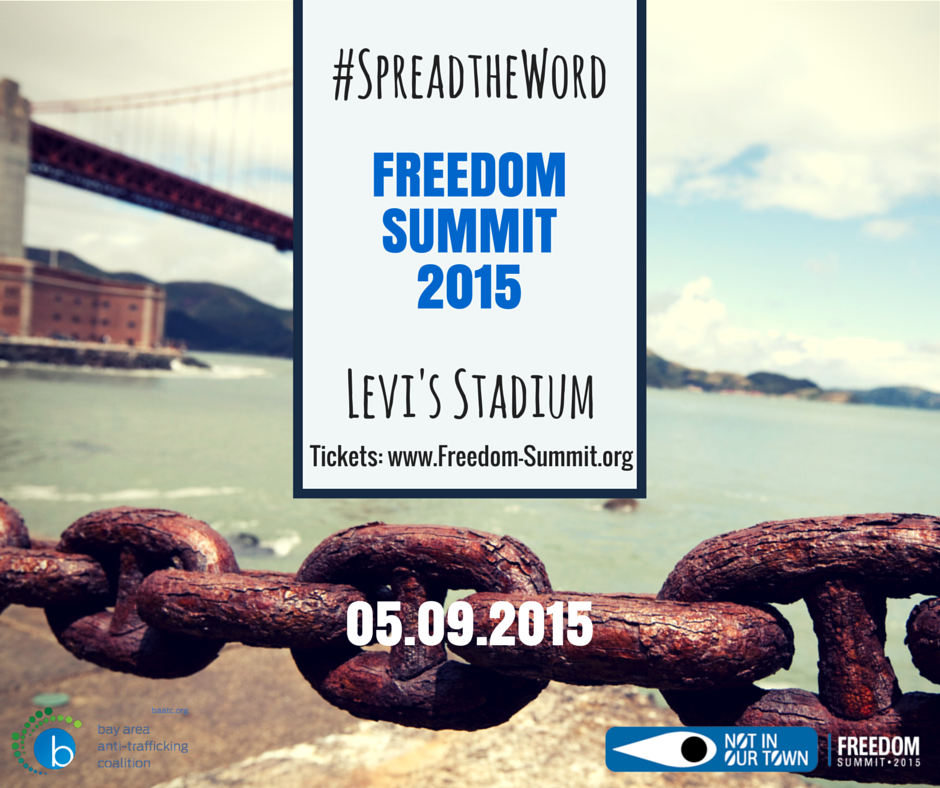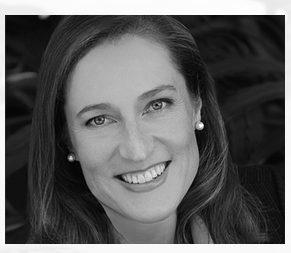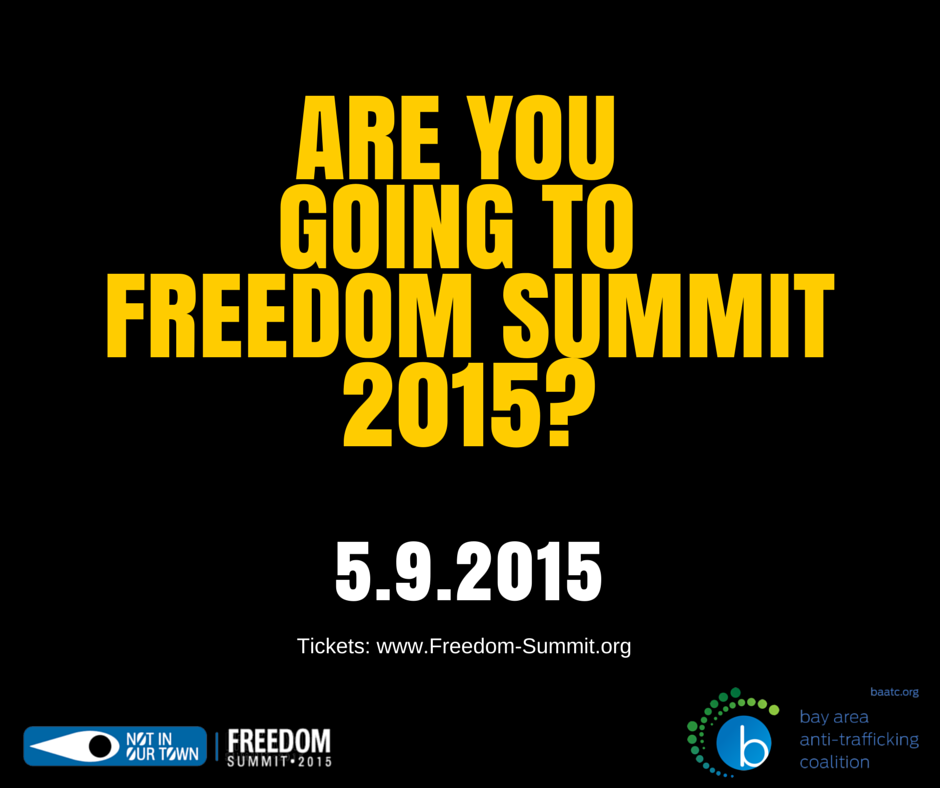|
When I tell people that I'm making a documentary about trafficking, people's faces get very serious. They nod and tell me that it's important work, but I can tell it's not something they want to think about. Of course not --no one wants to think about the horrible realities of this issue. I don't. But I do want to hear about what people are doing to stop it. How people are overcoming it. How organizations and individuals are coming together to end trafficking and help its victims rebuild their lives. And that's what the Freedom Summit is all about. It's an all-day event this Saturday, May 9th, 2015 at Levi Stadium in Santa Clara (where the 49ers play). There's going to be a really compelling lineup of speakers, including Larry Grant, an NFL linebacker, Mike Honda and Jackie Speier, our congresspeople, Alameda County District Attorney Nancy O'Malley, Brad Myles of Polaris, spoken word artist Regina Evans, and Brooke Axtell, a survivor advocate and singer. And musicians Robby & Bria and Jars of Clay will perform. Events like these are so great in bringing the community together, helping people find intersections in their efforts to form partnerships, and to learn from each other. I am always inspired when I learn about other people's work, even when they are struggling --maybe especially when they are struggling --because it reminds me that I need to keep plugging away too. So I'm really excited, not only to be attending, but to be volunteering at this event. There are tons of logistics that we're all juggling at the moment to put it together (which speakers needs rides, who is gluten-free, where will they park, etc, etc) and I am so thankful that there are people driven to organize an event like this and make it all happen. The organizer of the summit is the Bay Area Anti-Trafficking Coalition (BAATC). I'm happy to be able to share more about Betty Ann Boeving, BAATC's cofounder. What alerted you to the issue of human trafficking?
A: Since 2000, my travels to 85 countries have opened my eyes to shocking realities around the globe that involve both natural and man-made disasters. Specifically, I have been compelled to take a personal stand against human trafficking—where people are profiting from the control and exploitation of other people. The reality of this injustice occurring in our lifetime keeps me up at night. According to U.S. State Department statistics, the trafficking of persons is now the second largest criminal industry and the fastest growing criminal activity in the world. Worldwide two million children are taken into forced prostitution every year. Currently in the U.S., at least 18,000 people are trafficked annually into the United States and an estimated 400,000 American youth are at-risk of being trafficked because of economic, family system and psychological vulnerabilities. Q: We understand that you raised $45K to fight against human trafficking through a climb you did of Mt. Kilimanjaro in Tanzania. How did you end up deciding to do this? What was that experience like? A: In 2006, while working for International Justice Mission (www.ijm.org), an organization dedicated to helping equip justice systems around the world to protect the poor, I climbed Kilimanjaro to raise awareness and funds to fight child trafficking in Africa. I had met a 12-year old girl named Mary in Kenya, whose parents had been tragically killed, and with the pressures that mounted against her to care for her three younger siblings, Mary was at extreme risk of being preyed upon by traffickers who frequently visited her village offering great paying (falsified) jobs in Nairobi. I was determined to see that Mary and her three siblings could receive care from a local organization that could provide shelter, access to healthcare and education for these children so that they would have vocational options and enough money to resist such tempting offers. (The promise of better jobs or an upfront sum of money to cover a family or medical emergency often propels such an individual into debt bondage, a form of human trafficking.) When I returned from Africa, I started opening the newspapers to find local stories of human trafficking happening right here, with forced labor in restaurants, sexual exploitation in massage parlors and busts of undercover brothels, but there was so little dialogue about the problem here in the U.S. Both foreign nationals and American citizens have been taken up into this criminal activity because of their similar vulnerability to conditions of poverty, extreme medical expenses, lack of job skills, and more. I felt compelled to found the Bay Area Anti-Trafficking Coalition and bring the global dialogue about this issue here to the Bay Area in California. Q: What is your advice for expats living here? A: Some of the largest cases of human trafficking in Northern California have been brought to the attention of authorities by those in the expat community who are familiar with the vulnerabilities associated with embracing life in an unfamiliar country. Examples are: Thai workers brought in to help construct the new Bay bridge, and a Stanford visiting scholar who brought with her domestic help held in slave-like conditions, among others. Expats who are aware of this threat of trafficking to their affinity group can be an important bridge to help mobilized leaders in their community to provide trainings of awareness around the issue, and can help alert family members and friends in their home country of any links they identify between U.S. falsified jobs and promises of employment that are being promoted back home. Any suspicious activity or concerns can be anonymously called into the National Human Trafficking Hotline (1-888-373-3888) or text HELP to BeFree (233733). Q: What is the BAATC? A: The BAATC equips communities to fight trafficking and at www.baatc.org provides a 12-month calendar of all anti-trafficking training and awareness events around the region so that individuals and community leaders can take their next step in fighting this horrific injustice to human freedom. To learn more, the BAATC is hosting Freedom Summit 2015 on May 9th, 2015 in the new Levi’s Stadium in Santa Clara, California. This is the largest community-based anti-trafficking training conference of its kind in the country. You are invited to register now at: www.freedom-summit.org. *Betty Ann Boeving has been teaching and speaking on community-based solutions to fight human trafficking for over ten years. More training is available through her TEDx talk on trafficking at: https://vimeo.com/32157524.
0 Comments
Leave a Reply. |
Categories
All
|





 RSS Feed
RSS Feed